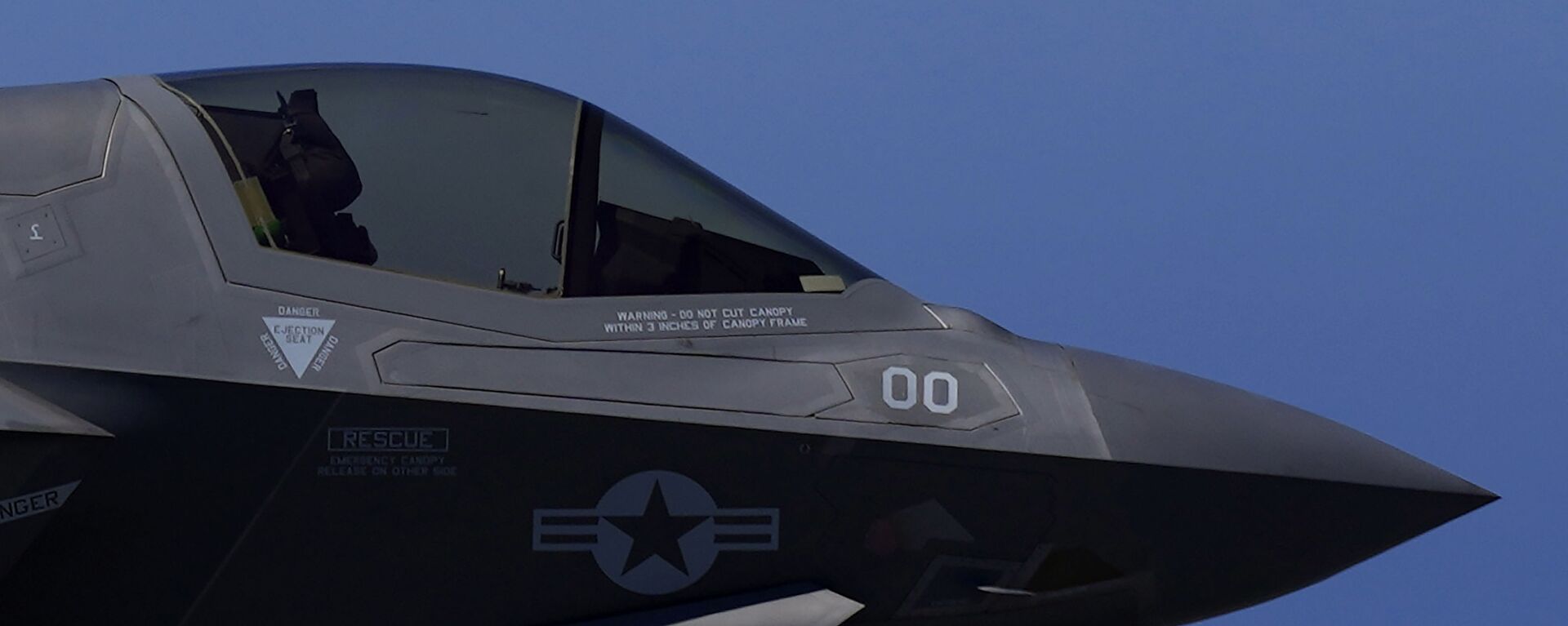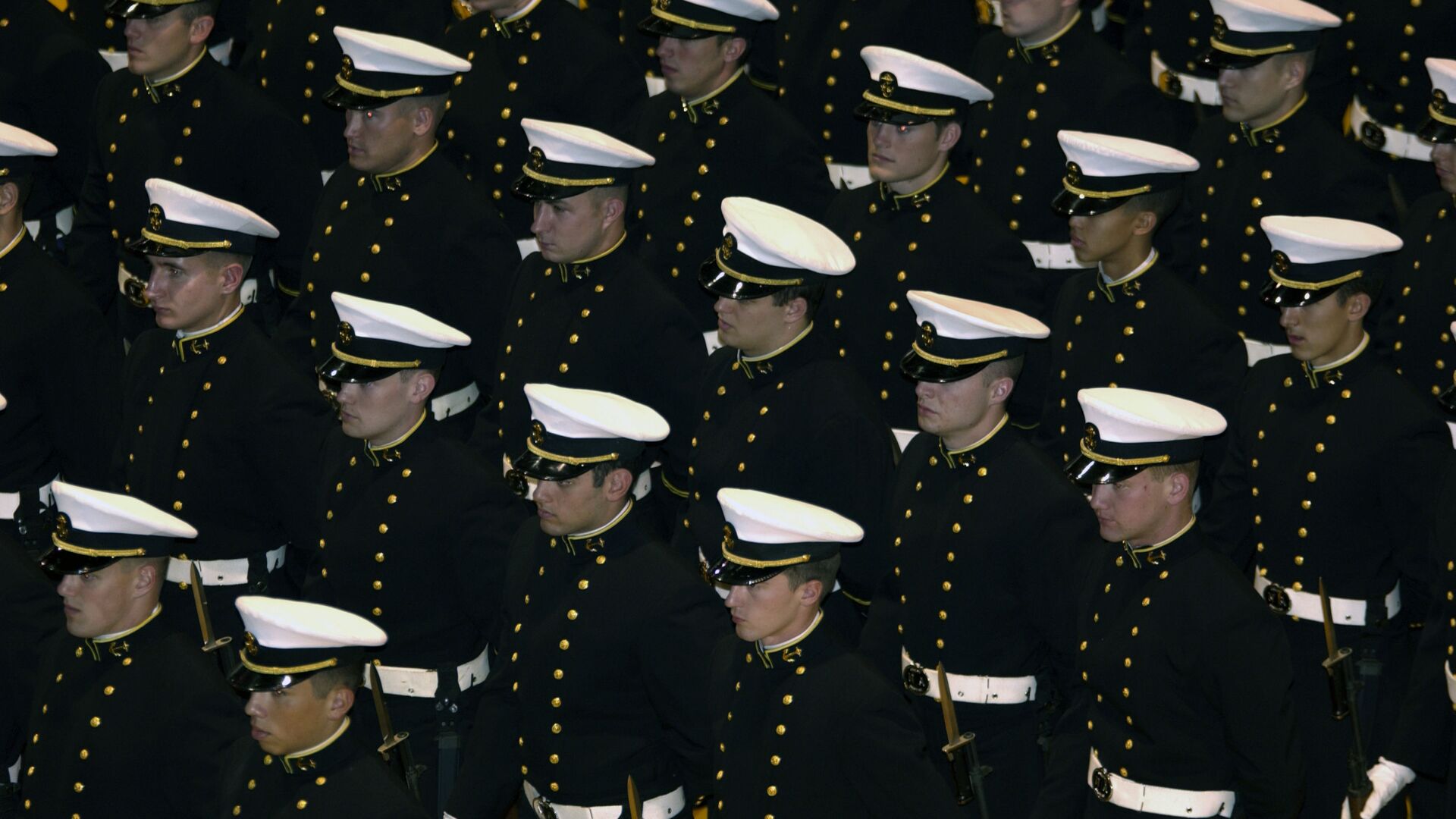https://sputnikglobe.com/20220522/staggering-statistics-number-of-us-navy-deserters-more-than-doubles-from-2019-to-2021-1095699017.html
‘Staggering’ Statistics: Number of US Navy Deserters More Than Doubles From 2019 to 2021
‘Staggering’ Statistics: Number of US Navy Deserters More Than Doubles From 2019 to 2021
Sputnik International
Desertion is a grave offence in the US military, something that can lead to a dishonourable discharge, forfeiture of pay, a loss of benefits or even... 22.05.2022, Sputnik International
2022-05-22T11:04+0000
2022-05-22T11:04+0000
2022-10-19T20:03+0000
us
desertion
statistics
leadership
jail term
us navy
https://cdn1.img.sputnikglobe.com/img/07e4/0a/01/1080635099_0:134:3008:1826_1920x0_80_0_0_27b9525bfa7b0d45496f29d8933ee85f.jpg
The number of sailors who illegally fled the US Navy last year was more than double that registered in 2019, NBC News reports citing the latest federal statistics.The data indicated that among over 342,000 active sailors, there were 157 new Navy deserters in 2021, against 63 in 2019 and 98 in 2020. The total number of deserters who were still at large in 2021 increased to 166 from 119 in 2019.Navy spokesperson Devin Arneson said in an interview with NBC News that during wartime, the most severe punishments for desertion include up to life in prison and death, while during peacetime, a deserter could face a number of penalties, including up to five years behind bars.Military experts were quoted by the broadcaster as saying the fresh figures regarding desertion in the US Navy underline “the lack of options for sailors when they’re desperate to leave the military but are bound to multiyear contracts that many of them signed just out of high school”.Stephen Karns, a Dallas-based military law attorney, for his part argued that desertion is “not just any sort of offence, […] it’s like you gave up on your country”. He added that of the almost 1,000 desertion cases he’s handled, mental health has been a factor in nearly every one.He was echoed by Judge Advocate General's Corps (JAG) officer Stephanie Kral, who told the US news outlet NPR that “[For] somebody who just doesn't like the [naval] environment, it's almost impossible to leave”.She added that irrespective of what “upper-level leadership says about trying to erase the stigma of mental health in our services, that does not play out when you get to the boots on the ground or the deck-plate level of actual experiences of junior service members”.The remarks followed Navy veteran Julien Napoli asserting in a piece for the Task & Purpose news outlet that the US Navy has been “mired in a crisis of leadership” for years, prompting sailors to overwork and feel that they can’t seek help if necessary.“This simple but powerful principle, if truly followed by naval leadership, would drastically increase combat effectiveness. It is much to the dismay of sailors that mental health awareness is such a low priority in today’s Navy”, Napoli pointed out.
https://sputnikglobe.com/20210924/us-navy-air-force-order-16-more-f-35-jets-costing-over-1bln---pentagon-1089386990.html
Sputnik International
feedback@sputniknews.com
+74956456601
MIA „Rossiya Segodnya“
2022
Oleg Burunov
https://cdn1.img.sputnikglobe.com/img/07e4/09/0b/1080424846_0:0:2048:2048_100x100_80_0_0_3d7b461f8a98586fa3fe739930816aea.jpg
Oleg Burunov
https://cdn1.img.sputnikglobe.com/img/07e4/09/0b/1080424846_0:0:2048:2048_100x100_80_0_0_3d7b461f8a98586fa3fe739930816aea.jpg
News
en_EN
Sputnik International
feedback@sputniknews.com
+74956456601
MIA „Rossiya Segodnya“
Sputnik International
feedback@sputniknews.com
+74956456601
MIA „Rossiya Segodnya“
Oleg Burunov
https://cdn1.img.sputnikglobe.com/img/07e4/09/0b/1080424846_0:0:2048:2048_100x100_80_0_0_3d7b461f8a98586fa3fe739930816aea.jpg
us, desertion, statistics, leadership, jail term, us navy
us, desertion, statistics, leadership, jail term, us navy
‘Staggering’ Statistics: Number of US Navy Deserters More Than Doubles From 2019 to 2021
11:04 GMT 22.05.2022 (Updated: 20:03 GMT 19.10.2022) Desertion is a grave offence in the US military, something that can lead to a dishonourable discharge, forfeiture of pay, a loss of benefits or even incarceration.
The number of sailors who illegally fled
the US Navy last year was more than double that registered in 2019, NBC News reports citing the latest federal statistics.
The data indicated that among over 342,000 active sailors, there were 157 new Navy deserters in 2021, against 63 in 2019 and 98 in 2020. The total number of deserters who were still at large in 2021 increased to 166 from 119 in 2019.
Benjamin Gold, a defence attorney for US service members, told NBC News “that’s staggering”, in a nod to the statistics pertaining to the US sailors-related facts of desertion, an unauthorised absence, in which a serviceman has no intention of returning.
Navy spokesperson Devin Arneson said in an interview with NBC News that during wartime, the most severe punishments for desertion include up to life in prison and death, while during peacetime, a deserter could face a number of penalties, including up to five years behind bars.
Military experts were quoted by the broadcaster as saying the fresh figures regarding desertion in the US Navy underline “the lack of options for sailors when they’re desperate to leave the military but are bound to multiyear contracts that many of them signed just out of high school”.
Lenore Yarger, a resource counsellor with the GI Rights Hotline, a non-profit non-governmental group that specialises in military discharges, argued that “they [some US sailors] feel trapped” when at service, something that might prod them to desert.
Stephen Karns, a Dallas-based military law attorney, for his part argued that desertion is “not just any sort of offence, […] it’s like you gave up on your country”. He added that of the almost 1,000 desertion cases he’s handled, mental health has been a factor in nearly every one.

24 September 2021, 23:15 GMT
He was echoed by Judge Advocate General's Corps (JAG) officer Stephanie Kral, who told the US news outlet NPR that “[For] somebody who just doesn't like the [naval] environment, it's almost impossible to leave”.
“Somebody who's suffering with an acute mental health crisis […] should not ordinarily result in a mental health discharge. What should happen is that they receive the care and treatment that they need to be ready to rehab their mental health and then go back to being a member of the fleet. Unfortunately, that's not always what we see,” Kral said.
She added that irrespective of what “upper-level leadership says about trying to erase the stigma of mental health in our services, that does not play out when you get to the boots on the ground or the deck-plate level of actual experiences of junior service members”.
The remarks followed Navy veteran Julien Napoli asserting in a piece for the Task & Purpose news outlet that the US Navy has been “mired in a crisis of leadership” for years, prompting sailors to overwork and feel that they can’t seek help if necessary.
He cited Navy SEAL and Medal of Honor recipient Mike Thornton, as saying “take care of your people and your people will take care of you”.
“This simple but powerful principle, if truly followed by naval leadership, would drastically increase combat effectiveness. It is much to the dismay of sailors that mental health awareness is such a low priority in today’s Navy”, Napoli pointed out.



